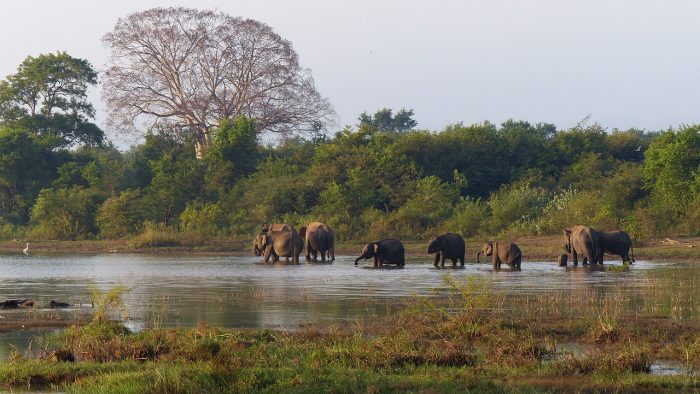
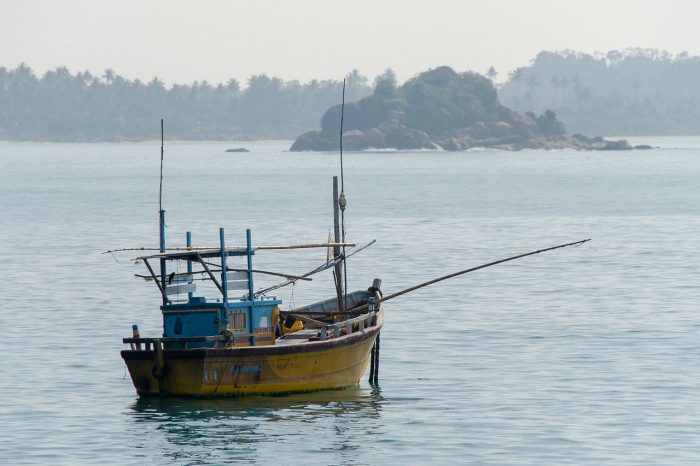
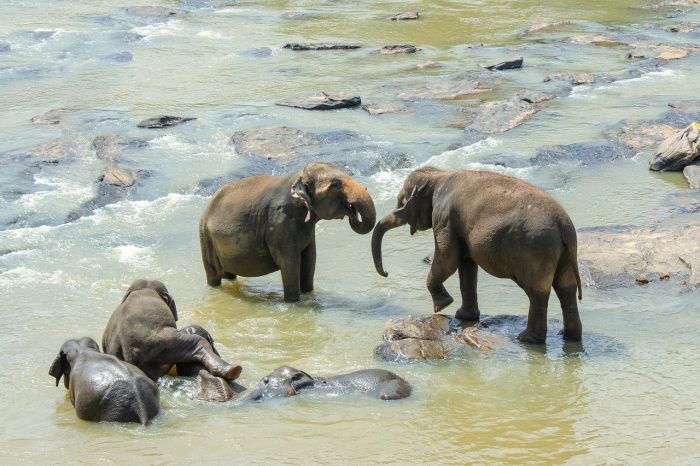
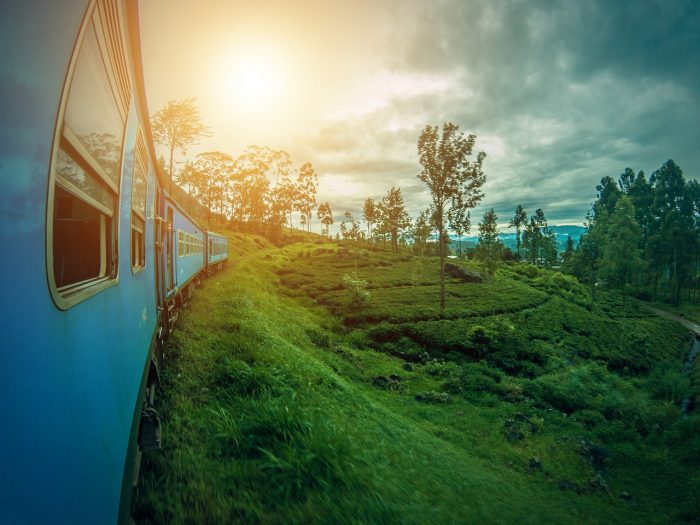
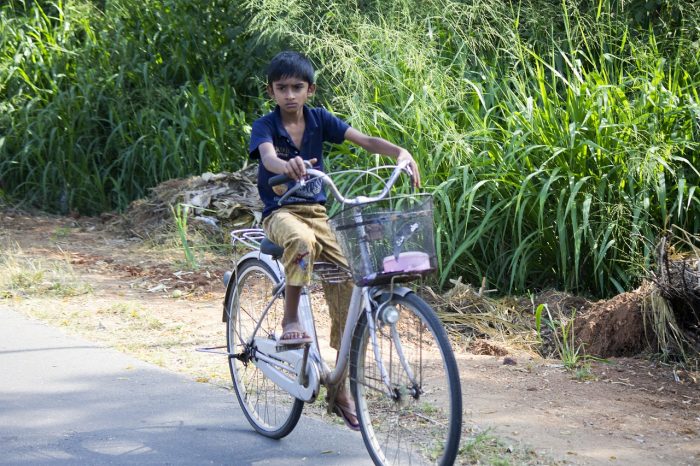
Forced adoption and the trafficking of children in Sri Lanka represent an inconceivable tragedy that uprooted thousands of lives. These stories expose how unethical practices, such as baby farms and fraudulent paperwork, led to countless children being separated from their families. Through investigative documentaries and personal accounts, we uncover the painful truths behind these adoptions, shedding light on the families torn apart and the children left searching for their identities.
Gedwongen adoptie en de handel in kinderen in Sri Lanka vertegenwoordigen een onvoorstelbare tragedie die duizenden levens heeft ontworteld. Deze verhalen onthullen hoe onethische praktijken, zoals babyboerderijen en frauduleuze documenten, ertoe hebben geleid dat talloze kinderen werden gescheiden van hun families. Door middel van onderzoeksdocumentaires en persoonlijke verhalen, brengen we de pijnlijke waarheden achter deze adopties aan het licht, en werpen we licht op de gezinnen die uit elkaar zijn gerukt en de kinderen die op zoek zijn naar hun identiteit.
1 By train across Sri Lanka | DW Documentary
20 sep. 2017
2 British brothers aid Sri Lanka orphans
Inconceivable Tragedy: Forced Adoption, Trafficking Children
The tragedy of forced adoption and child trafficking in Sri Lanka is a deeply unsettling reality that has affected countless lives. For decades, corrupt networks operating within Sri Lanka manipulated vulnerable families, often under the guise of legitimate adoption processes. Babies were stolen, families were lied to, and children were sold to foreign families, leaving emotional scars that span generations.
Through the powerful testimonies and investigative documentaries presented here, we uncover the painful stories of those impacted by these deceitful practices. From the search for birth families, as seen in Rebecca Nalayini’s emotional journey, to the shocking findings in international investigations like Zembla and Envoyé spécial, these videos reveal a dark chapter of exploitation and systemic failure. Each story exposes how children were trafficked under false pretenses, often by those entrusted to protect them.
These documentaries dive deep into the scandal of baby farms, where children were not only sold for adoption but were systematically separated from their biological parents with fraudulent paperwork. In Envoyé spécial: Les enfants perdus du Sri Lanka, we witness the aftermath of these practices, with children desperately trying to reconnect with the families they were torn from. News1st: The Story of Rebecca Nalayini brings the personal pain of this tragedy to the forefront, as adoptees like Rebecca search for their lost identities. Meanwhile, Grote fraude met adopties uit Sri Lanka | Zembla reveals the vast web of fraud that spanned borders, implicating both local and international adoption agencies.
This page seeks to shine a light on the injustice of forced adoption and the trafficking of children, providing a voice to those whose stories have been silenced for far too long. It is a call to action for awareness, accountability, and justice for the children who have been lost and the families who have been forever torn apart.
Onvoorstelbare Tragedie: Gedwongen Adoptie, Kinderhandel
De tragedie van gedwongen adoptie en kinderhandel in Sri Lanka is een diep verontrustende realiteit die ontelbare levens heeft getroffen. Gedurende tientallen jaren manipuleerden corrupte netwerken binnen Sri Lanka kwetsbare gezinnen, vaak onder het mom van legitieme adoptieprocessen. Baby’s werden gestolen, gezinnen werden belogen en kinderen werden verkocht aan buitenlandse gezinnen, wat emotionele littekens achterliet die generaties lang doorwerkten.
Door de krachtige getuigenissen en onderzoeksdocumentaires die hier worden gepresenteerd, onthullen we de pijnlijke verhalen van degenen die door deze bedrieglijke praktijken zijn getroffen. Van de zoektocht naar biologische families, zoals te zien is in Rebecca Nalayini’s emotionele reis, tot de schokkende bevindingen in internationale onderzoeken zoals Zembla en Envoyé spécial, deze video’s onthullen een duistere periode van uitbuiting en systeemfalen. Elk verhaal legt bloot hoe kinderen onder valse voorwendselen werden verhandeld, vaak door degenen die hen zouden moeten beschermen.
Deze documentaires gaan diep in op het schandaal van babyboerderijen, waar kinderen niet alleen werden verkocht voor adoptie, maar systematisch werden gescheiden van hun biologische ouders door middel van frauduleuze documenten. In Envoyé spécial: Les enfants perdus du Sri Lanka zien we de nasleep van deze praktijken, waarbij kinderen wanhopig proberen contact te maken met de families van wie ze zijn gescheiden. News1st: Het Verhaal van Rebecca Nalayini brengt de persoonlijke pijn van deze tragedie naar voren, terwijl geadopteerden zoals Rebecca zoeken naar hun verloren identiteit. Ondertussen onthult Grote fraude met adopties uit Sri Lanka | Zembla het enorme netwerk van fraude dat grenzen overschreed, en implicaties voor zowel lokale als internationale adoptiebureaus.
Deze pagina is bedoeld om licht te werpen op het onrecht van gedwongen adoptie en kinderhandel, en biedt een stem aan degenen wiens verhalen te lang zijn verzwegen. Het is een oproep tot bewustwording, verantwoordelijkheid en gerechtigheid voor de kinderen die verloren zijn gegaan en de gezinnen die voor altijd zijn verscheurd.
3 Envoyé spécial. Les enfants vendus du Sri Lanka – 23 mai 2019 (France 2)
28 mei 2019
Quelque 1 500 Français ont été adoptés au Sri Lanka pendant les années 1980, dont certains ont été victimes d’un trafic d’enfants. Devenus adultes, ils veulent connaître la vérité. “Envoyé spécial” a suivi Champika et Rohan, deux trentenaires dans leur quête d’identité.
Quelque 1 500 Français ont été adoptés au Sri Lanka pendant les années 1980. Tous ne le savent pas, mais ils ont peut-être été victimes d’un trafic d’enfants. A l’époque, le flou juridique entourant les adoptions a permis à certains intermédiaires peu scrupuleux de s’enrichir.
“Fermes à bébés”, vols de nourrissons à la maternité…
Certains ont même créé des “fermes à bébés” : des établissements dans lesquels des mères sri lankaises démunies ont été poussées à donner ou à vendre leur progéniture. Pire, certaines ont vu leur nouveau-né volé à l’hôpital.
Devenus adultes, certains de ces enfants veulent aujourd’hui connaître la vérité, aussi difficile puisse-t-elle être. De la France au Sri Lanka, l’équipe d'”Envoyé spécial” a suivi deux trentenaires, Champika et Rohan, dans leur quête d’identité.
Un reportage de Nicolas Bertrand, Guillaume Marque et Marion Giraud
IMPORTANT CONTENT
4 Adoption Fraud at baby farms – part 2
5 okt. 2017
Zembla
The existence of so-called ‘baby farms’ was the most important reason for the Sri Lankan government to suspend intercountry adoption in 1987. At these baby farms, women were impregnated to meet the demand for adoptive children. This is confirmed by Sri Lanka’s Minister of Health, Dr. Rajitha Senaratne, in response to the investigation by ZEMBLA. “There were a lot of baby farms back then,” says the minister. “They collected the babies there and sold them to foreigners for adoption.” This is the first time the Sri Lankan government admits the existence of ‘baby farms’. Stories of ‘baby farms’ had previously been dismissed as rumours.
In response to the ZEMBLA findings, Sri Lanka will launch an investigation into the adoption fraud involving thousands of children who were brought from Sri Lanka to the Netherlands during the 1980s. Minister Senaratne also takes the initiative to establish a DNA databank, which children as well as parents can use to search for relatives.
Last May, in the broadcast of ‘Adoptiebedrog’ (Adoption Fraud), ZEMBLA revealed that adoption records of children adopted from Sri Lanka to the Netherlands during the 1980s had been falsified on a large scale. Mothers who gave their child up for adoption turn out not to be their biological mothers. Siblings of adoptive children were never mentioned, travel documents were given new dates of birth filled in manually.
‘Acting mothers’
ZEMBLA also discovered that children had been sold for adoption from a hospital in Matugama. This was based on statements from nurses working at the hospital. ZEMBLA also speaks with a mother, whose baby had allegedly passed away shortly after birth, according to the doctors. She says a family member saw a doctor carrying the infant out of the hospital alive.
Subsequently, these babies were given up for adoption by so-called ‘acting mothers’. Acting mothers were women who were paid to pretend to be the mothers of children put up for adoption. ZEMBLA spoke with one of the ‘acting mothers’. She talks about giving a child up for adoption that wasn’t hers. When being asked who put her up to pretending to be an ‘acting mother’ she says: “Someone connected to the hospital. (…) They asked me to act as a mother. Then they gave me 2,000 rupees.”
Sri Lanka investigates adoption fraud
Sri Lankan minister Senaratne does not take the findings lightly: “The government (of Sri Lanka, ed.) should take this very seriously. We will have to set up a special agency where parents and children can have their DNA tested. This provides an easy method of finding out if it is the real mother or not. I will take the initiative for this.”
ZEMBLA also discovered that a small group of lawyers, medical staff and employees then working for the Sri Lankan child protection bureau were responsible for the adoption fraud. In fact, doctors and nurses acted as intermediaries for Western adoption agencies.
Minister Senaratne stated he will look into the fraud: “It happened in an illegal manner, it’s very wrong. It violates the human rights of these families. This needs to be looked into.”
Dijkhoff’s response
When asked, State Secretary Dijkhoff, who is responsible for intercountry adoptions in the Netherlands, announced that he “is currently investigating who played which part and who were responsible at the time, how everything was monitored and which organisations and persons were involved in general.”
Dijkhoff also writes: “I will also talk to a few organisations involved (UAI, FIOM) and I will approach the Sri Lankan authorities. Based on that, I will consider if the Dutch government should be involved in this matter.”
‘Stichting Flash’ switched babies
ZEMBLA finds a letter from former adoption agency ‘Stichting Flash’ from 2001, addressed to a Flash employee in Sri Lanka. The letter describes how one baby from a pair of twins that were up for adoption had died and a different infant was adopted to the Netherlands using the name of the deceased child.
The letter includes: “The baby died. The lawyer (…) asks the adoptive parents not to cry and suggests to use the papers of the deceased child to give another orphan the opportunity to have a better life. The adoptive parents discussed this with the chairman of Flash.”
When asked, a former board member of ‘Stichting Flash’ and a former employee told ZEMBLA that they do not recollect ever having seen this letter.
5 Grote fraude met adopties uit Sri Lanka | Zembla
In première gegaan op 4 mei 2022
6 #BeInformed: What Happened Way Back When Sri Lanka Was Home To Baby Farms?
7 okt. 2017
7 Finding My Lost Family | Made In Asia – The Real Life Lion | FULL DOCUMENTARY | Part 1 | Origin1
25 mrt 2022
Follow four women trying to find their birth parents…
This series follows four women adopted from South Asia as they return to find their birth mothers. They are searching not just for their relatives, but also for a lost identity. What they discover will CHANGE THEIR LIVES FOREVER
Over 11000 people who were born in Sri Lanka have been adopted overseas. Many of them have grown with little knowledge of the people or culture they left behind.
This film follows two women – both adopted as babies – as they return to Sri Lanka to try and find their birth families. They are searching not just for their relatives, but also for a lost identity.
38-year-old Rebecca was adopted from Sri Lanka when she was three months old. Her adoptive parents were a Sri Lankan couple living in London.
They brought her up as an only child and worked hard to give her every opportunity they could. She went to the best schools, had lavish birthday parties, and excelled in music and the arts. But they also kept one important fact from her – they never told her that she was adopted. For the first nine years of her life, Rebecca thought her adoptive family was her birth family.
Searching for Mother
25 aug. 2018
Educational: This video is essential viewing
Educational: This video is essential viewing
8 News1st: The story of Rebecca Nalayini, looking for her birth mother in Sri Lanka
25 okt. 2017
9 The Real Life Lion: Re-Uniting With My Long Lost Family | Made In Asia | Part 2 | Origin
1 apr 2022
44-year-old Teri grew up as an only child in South London. The only thing she knew about her birth mother was that she had abandoned her at Mother Theresa’s orphanage shortly after Teri was born.
All of her life, Teri has struggled to understand why her birth mother decided to do this.
As she returns to Kolkata Teri is searching for answers about the community she came from and the truth about her mother.
She knows her family were Anglo-Indians, a Christian minority that began in imperial times when British SOLDIERS married Indian women. As she searches in slums and streets of Kolkata, she will learn a story about her family that has remained hidden from her all of her life.
Key Points for Individual Videos:
Envoyé spécial – Les enfants perdus du Sri Lanka
- Investigates the large-scale trafficking of children from Sri Lanka.
- Focuses on fraudulent adoption agencies and baby farms.
- Highlights the struggles of adoptees attempting to trace their biological families.
News1st: The Story of Rebecca Nalayini
- Personal story of Rebecca Nalayini’s search for her birth mother.
- Explores the emotional toll on adoptees and birth parents.
- Discusses systemic issues in Sri Lankan adoption practices.
#BeInformed: What Happened Way Back When Sri Lanka Was Home to Baby Farms?
- Examines the rise of baby farms in Sri Lanka during the 1980s.
- Details how infants were sold for adoption through fraudulent means.
- Reflects on the long-term impacts on adoptees and their families.
Grote fraude met adopties uit Sri Lanka | Zembla
- Exposes widespread adoption fraud involving Dutch adoptive families.
- Features investigative journalism uncovering falsified documents and coercion.
- Focuses on the complicity of international adoption agencies.
Envoyé spécial. Les enfants vendus du Sri Lanka – 23 mai 2019 (France 2)
- Highlights cases of children sold for adoption under false pretenses.
- Investigates the role of intermediaries and corrupt officials in Sri Lanka.
- Calls for accountability and justice for the victims.
Adoption Fraud at Baby Farms – Part 2
- Continues the exploration of adoption fraud schemes.
- Highlights individual stories of deception and loss.
- Calls attention to the need for transparency and reform in adoption systems.
Kernpunten voor Individuele Video’s:
Envoyé spécial – Les enfants perdus du Sri Lanka
- Onderzoekt de grootschalige handel in kinderen uit Sri Lanka.
- Richt zich op frauduleuze adoptiebureaus en babyboerderijen.
- Belicht de worstelingen van geadopteerden die proberen hun biologische families te traceren.
News1st: Het Verhaal van Rebecca Nalayini
- Persoonlijk verhaal van Rebecca Nalayini’s zoektocht naar haar biologische moeder.
- Onderzoekt de emotionele impact op geadopteerden en biologische ouders.
- Bespreekt de systemische problemen binnen de adoptiepraktijken in Sri Lanka.
#BeInformed: Wat Gebeurde er Toen Sri Lanka Nog de Thuisbasis van Babyboerderijen Was?
- Onderzoekt de opkomst van babyboerderijen in Sri Lanka in de jaren ’80.
- Beschrijft hoe baby’s werden verkocht voor adoptie via frauduleuze middelen.
- Reflecteert op de langdurige impact op geadopteerden en hun families.
Grote fraude met adopties uit Sri Lanka | Zembla
- Onthult wijdverspreide adoptiefraude waarbij Nederlandse adoptiegezinnen betrokken zijn.
- Bevat onderzoeksjournalistiek die vervalste documenten en dwang onthult.
- Richt zich op de medeplichtigheid van internationale adoptiebureaus.
Envoyé spécial. Les enfants vendus du Sri Lanka – 23 mei 2019 (France 2)
- Belicht gevallen van kinderen die onder valse voorwendselen voor adoptie werden verkocht.
- Onderzoekt de rol van tussenpersonen en corrupte ambtenaren in Sri Lanka.
- Roept op tot verantwoording en gerechtigheid voor de slachtoffers.
Adoption Fraud at Baby Farms – Part 2
- Zet de verkenning van adoptiefraude verder.
- Belicht individuele verhalen van bedrog en verlies.
- Vestigt de aandacht op de noodzaak van transparantie en hervorming in adoptiesystemen.
Sri Lanka: The basics
- Sri Lanka is an island nation off southern India: It won independence from British rule in 1948. Three ethnic groups – Sinhalese, Tamil and Muslim – make up 99% of the country’s 22 million population.
- One family of brothers has dominated for years: Mahinda Rajapaksa became a hero among the majority Sinhalese in 2009 when his government defeated Tamil separatist rebels after years of bitter and bloody civil war. His brother Gotabaya, who was defence secretary at the time, is the current president but says he is standing down.
- Presidential powers: The president is the head of state, government and the military in Sri Lanka but does share a lot of executive responsibilities with the prime minister, who heads up the ruling party in parliament.
- Now an economic crisis has led to fury on the streets: Soaring inflation has meant some foods, medication and fuel are in short supply, there are rolling blackouts and ordinary people have taken to the streets in anger with many blaming the Rajapaksa family and their government for the situation.
10 What’s happening in Sri Lanka? | Start Here
16 mei 2022
11 Old Man’s Hand Gets Smashed To Prove Blindness
29 aug. 2019